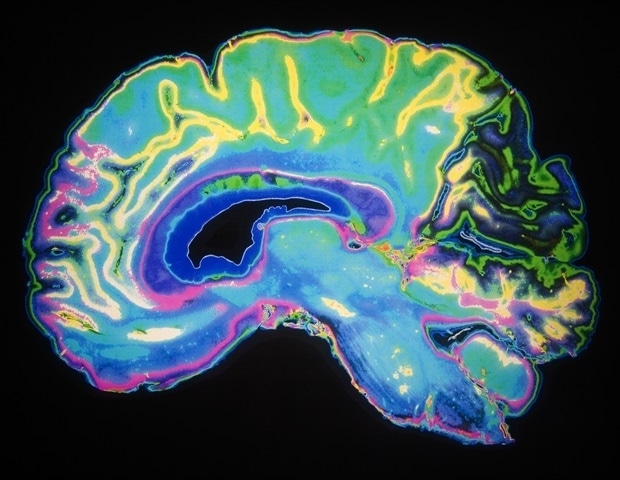Editor’s Note: Read more NBA coverage from The Athletic here. The views on this page do not necessarily reflect the views of the NBA or its teams.
***
Two nights earlier, clinging to a single-digit fourth-quarter lead in Orlando, Chicago…

Editor’s Note: Read more NBA coverage from The Athletic here. The views on this page do not necessarily reflect the views of the NBA or its teams.
***
Two nights earlier, clinging to a single-digit fourth-quarter lead in Orlando, Chicago…

As the days get shorter and nights get colder, it’s a great time to settle down in a cozy, warm spot with a good book. And if you enjoy reading e-books, this Halloween week provides a fantastic opportunity to stock up on scary stories.
Stuff Your…

Ken Paxton, the Texas attorney general, filed a lawsuit against the makers of Tylenol, claiming they deceptively marketed the pain medication to pregnant people despite alleged risks of autism and attention-deficit hyperactivity disorder (ADHD) in children.
Paxton filed the suit on Tuesday in Texas state court against Johnson & Johnson, the creators of Tylenol, and Kenvue, a Johnson & Johnson spinoff company which has sold Tylenol since 2023.
Paxton, who is currently running for US Senate, alleged that both companies violated Texas’s consumer protection laws by not warning buyers. Paxton is also suing Johnson & Johnson for allegedly violating the Texas Uniform Fraudulent Transfer Act by “fraudulently transferring liabilities arising from Tylenol” to Kenvue, said the Texas attorney general in a press release.
“Big Pharma betrayed America by profiting off of pain and pushing pills regardless of the risks. These corporations lied for decades, knowingly endangering millions to line their pockets,” said Paxton in a press release.
Texas is the first state to file such a suit after the Trump administration claimed last month that acetaminophen, a drug ingredient in Tylenol, carries a risk of autism, despite no new evidence suggesting that.
The latest suit comes only days after Donald Trump again warned pregnant people not to take the over-the-counter medication unless “absolutely necessary” and that children should not be given Tylenol “for virtually any reason” in comments made on Truth Social.
Tylenol makers have repeatedly defended the pain medication. Kenvue released a statement Tuesday in response to Paxton’s lawsuit, saying: “Acetaminophen is the safest pain reliever option for pregnant women as needed throughout their entire pregnancy.”
“Without it, women face dangerous choices: suffer through conditions like fever that are potentially harmful to both mom and baby or use riskier alternatives,” the Kenvue statement continued.
In a previous September statement, Kenvue also said that it “strongly disagrees” with assertions that Tylenol may cause autism. “Sound science clearly shows that taking acetaminophen does not cause autism,” the statement said.
Top medical groups have similarly defended the use of Tylenol by pregnant people. The American College of Obstetricians and Gynecologists (ACOG) called the Trump administration’s guidance on Tylenol “irresponsible”.
“Suggestions that acetaminophen use in pregnancy causes autism are not only highly concerning to clinicians but also irresponsible when considering the harmful and confusing message they send to pregnant patients, including those who may need to rely on this beneficial medicine during pregnancy,” said the group in a September statement.

During a procedure known as laser lithotripsy, urologists use a small, video-guided laser to blast painful, potentially damaging kidney stones to smithereens.
It’s better for the patient if urologists can break kidney stones down…
ABU DHABI, Oct. 28 (Xinhua) — The Al Khatim Astronomical Observatory in Abu Dhabi has captured an image of the distant “Lion Nebula,” a vast region of ionized gas and dust located about 10,000 light-years from Earth, UAE local media Gulf News…

In a peer-reviewed article published today in Brain Medicine, a European research team presents a focused review of emerging neuromodulation techniques for treatment-resistant obsessive-compulsive disorder (OCD). The article,…

Neurodegenerative diseases (NDs), such as Alzheimer’s disease (AD), Parkinson’s disease (PD), amyotrophic lateral sclerosis (ALS), and multiple sclerosis (MS), represent a growing global health burden, particularly in aging…

IGN has once again teamed up with ID@Xbox for a brand-new showcase that arrived today, just a few days before Halloween. The show was filled with big teases about the bright future of indie games, and it was led by a deep dive of how Mouse: P.I….

In March, three months after being forced out of his position as the CEO of Intel and sued by shareholders, Patrick Gelsinger took the reins at Gloo, a technology company made for what he calls the “faith ecosystem” – think Salesforce for churches, plus chatbots and AI assistants for automating pastoral work and ministry support.
The former CEO’s career pivot is taking place as the US tech industry returns to the political realm as a major revenue stream. Some of its most prominent present-day leaders have funded Donald Trump’s re-election and renewed their pursuit of government contracts as the second Trump administration has revitalized religious conservatism in Washington DC.
Now Gloo’s executive chair and head of technology (who’s largely free of the shareholder suit), Gelsinger has made it a core mission to soft-power advance the company’s Christian principles in Silicon Valley, the halls of Congress and beyond, armed with a fundraised war chest of $110m. His call to action is also a pitch for AI aligned with Christian values: tech products like those built by Gloo, many of which are built on top of existing large language models, but adjusted to reflect users’ theological beliefs.
“My life mission has been [to] work on a piece of technology that would improve the quality of life of every human on the planet and hasten the coming of Christ’s return,” he said.
Gloo says it serves “over 140,000 faith, ministry and non-profit leaders”. Though its intended customers are not the same, Gloo’s user base pales in comparison with those of AI industry titans: about 800 million active users rely on ChatGPT every week, not to mention Claude, Grok and others.
Religiosity like Gelsinger’s – a born-again Christian who has referred to Silicon Valley as his “mission field” – is shaping Silicon Valley’s culture in its image. Where there was once purported atheism, there is now “a very loud, very visible and very specifically Christian-inflected technological culture” in Silicon Valley, said Damien Williams, a scholar at the University of North Carolina at Charlotte who studies how technologies are shaped by religious beliefs. It’s exemplified by figures like Peter Thiel – who warns of the coming of the antichrist if humanity fails to work toward certain technological frameworks – and Andreessen Horowitz’s Katherine Boyle, a close friend of JD Vance, the US vice-president. Gelsinger has long been outspoken about his Christian values, helping found Transforming the Bay With Christ in 2013, an organization aiming to ignite a Christian spiritual movement in the region.
Speaking on 7 October at a seminar co-hosted by Gloo, Colorado Christian University, a conservative college, and the Christian Post, a conservative evangelical Christian news outlet, Gelsinger framed AI’s development as “another Gutenberg moment”: an epochal shift as important as the Reformation. In the same way that a “plump little monk”, Martin Luther, used the printing press to catalyze “the greatest period of human invention”, he sees a similar faith-driven opportunity today to change the course of history through AI.
“The church embraced that great invention of the day to literally change humanity,” Gelsinger said of the printing press. “And so my question today is: are we going to embrace [and] shape AI as a technology that truly does become a powerful embodiment of the church and the expression of the church?”
Straddling the worlds of AI, Christianity and faith tech, Gloo isn’t solely focused on shaping the AI sector through Silicon Valley. It’s wielding influence in other ways, such as by supporting and funding a Christian tech ecosystem. The company hosted a three-day hackathon following the seminar at Colorado Christian University; its event saw more than 600 participants compete for over $250,000 in prize money – nearly triple the attender count from 2024.
Though growing, the event was not without hiccups. Ryan Siebert, an AI product developer and hackathon attender, said he was able to get Gloo’s newest large language model, which has not yet been publicly launched, to provide him a recipe for methamphetamine through a prompt injection. He later communicated with the president of Gloo AI to share details about the vulnerability. A Gloo spokesperson said the company explicitly invited hackathon attenders to be among the first to test the new large language model and offer feedback on it, as the product is in a “pre-beta” stage of development.
after newsletter promotion
Meanwhile, Gelsinger said his message about Christian AI was finding friendly ears in Washington DC. In an interview with the Guardian, he described presenting Gloo’s work to legal advocacy groups, as well as congressional leaders. He declined to name the institutions or politicians, but said some lawmakers were interested in using Gloo products at their churches.
Gloo and Gelsinger frequently travel in conservative political circles. Brandon Showalter, a journalist at the Christian Post and moderator at the Gloo co-hosted seminar, is an anti-trans activist who has said he hopes trans youth care will eventually become “as unthinkable as ice pick lobotomies”. Annie Chestnut Tutor, an analyst at the Heritage Foundation, the influential conservative thinktank behind Project 2025, participated in a panel moderated by Showalter and offered a Beltway insider’s perspective on AI regulation. On 17 October, Gelsinger delivered his “Gutenberg moment” stump speech at Liberty University’s CEO Summit, which also featured Liz Truss, Michael Flynn and Dan T Cathy, the Chick-fil-A chairman, as keynote speakers.
But Gelsinger appears just as comfortable in those venues as he does as a guest of honor at Joe Biden’s 2022 State of the Union address; and, as may be expected of a pragmatic industry executive, public records show he’s backed political campaigns on both sides of the aisle.
Gloo itself strikes an ecumenical tone in its institutional messaging. It shied away from politics or denominational disagreements at the hackathon; when an attender shared plans on Discord to build an AI bot of Charlie Kirk, the conservative political figure assassinated at a rally in Utah last month, that would offer “scripture-based responses”, a hackathon organizer encouraged staying “solidly focused on Jesus here”, even as “politics are definitely important”. Leah and Wes Brooks, whose hackathon team built a set of open-source AI tools enabling interoperability among faith-based and other apps, noted a diverse set of event-goers and religious backgrounds – including a female pastor – as well as a generally collaborative environment. “We didn’t even have to sign a statement of faith or anything like that,” Leah Brooks said. Gloo also says it does not “prohibit in any way” Muslim organizations from using its technology.
“We’re not trying to take a theological position: we’re building a technology platform, and then giving enough customization capability that the Lutherans can be good with it, the Episcopalians can be good with it, the Catholics can be good [with it], the Assemblies of God can be good with it,” Gelsinger told the Guardian. “We’re trying to say, ‘Hey, there’s a broad tent here of faith and flourishing,’ but also we’re trying to satisfy many organizations that do not take a denominational perspective, [such as] Alcoholics Anonymous.”
Gelsinger wants faith to suffuse AI. He has also spearheaded Gloo’s Flourishing AI initiative, which evaluates leading large language models’ effects on human welfare across seven variables – in essence gauging whether they are a force for good and for users’ religious lives. It’s a system adapted from a Harvard research initiative, the Human Flourishing Program. Models like Grok 3, DeepSeek-R1 and GPT-4.1 earn high marks, 81 out of 100 on average, when it comes to helping users through financial questions, but underperform, about 35 out of 100, when it comes to “Faith”, or the ability, according to Gloo’s metrics, to successfully support users’ spiritual growth.
Gloo’s initiative has yet to visibly attract Silicon Valley’s attention. A Gloo spokesperson said the company is “starting to engage” with prominent AI companies.
“I want Zuck to care,” Gelsinger said.